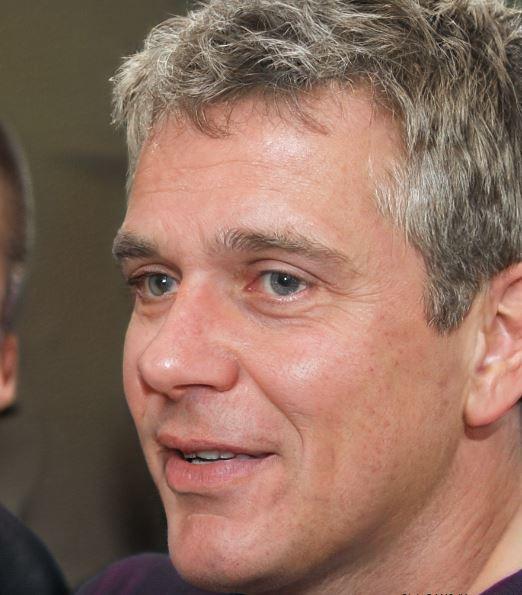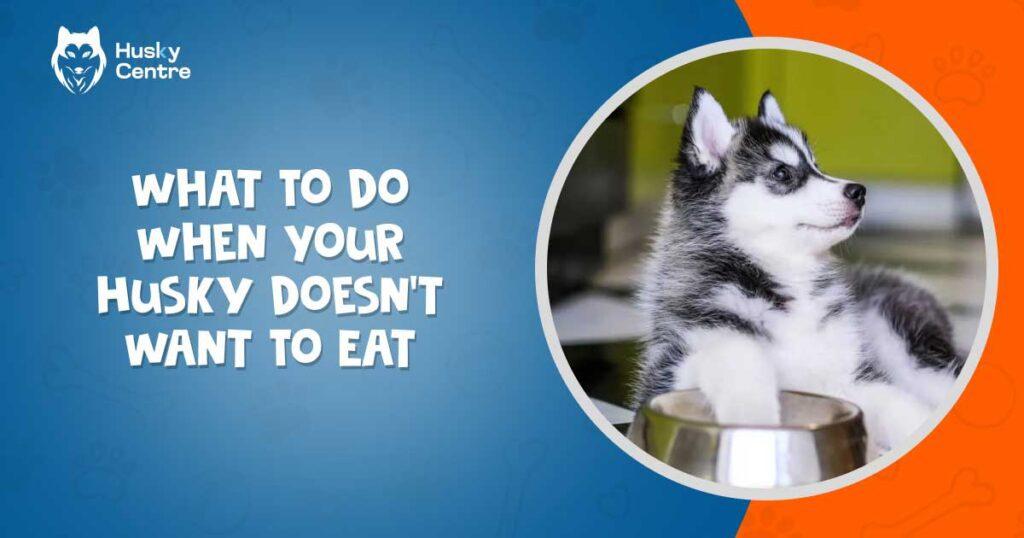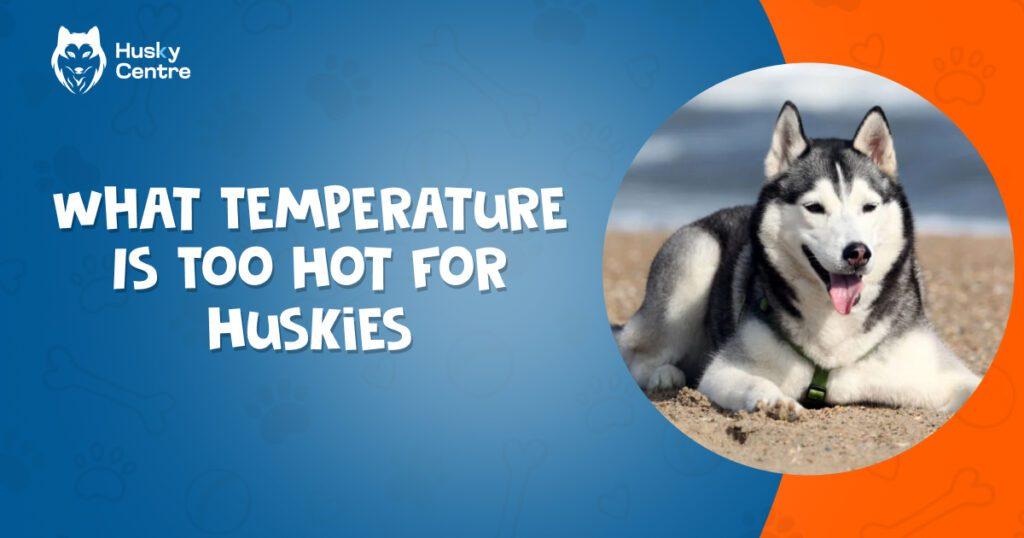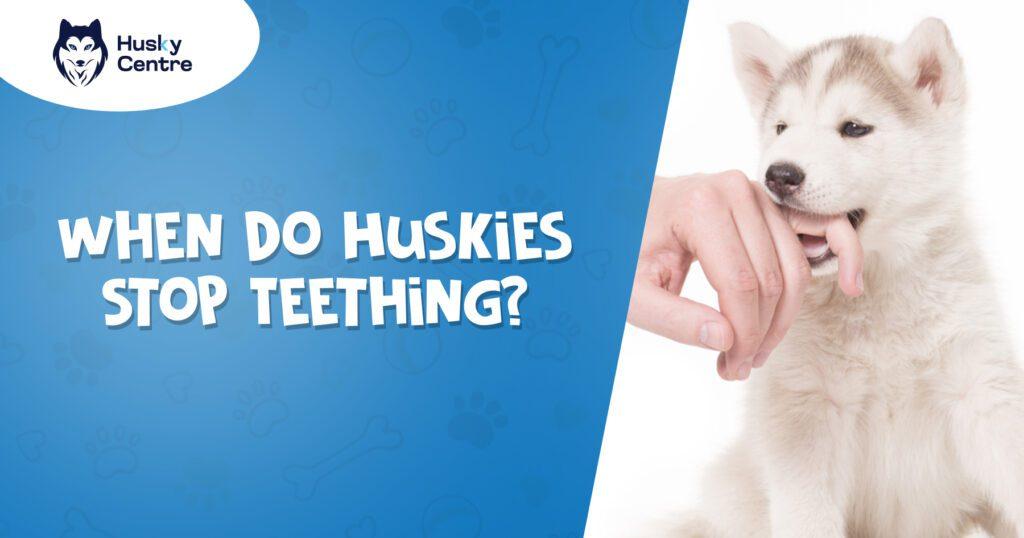If your husky doesn’t want to eat, check for any health issues and consult a vet. Ensure the food is fresh and appealing.
Huskies are known for their unique eating habits. Sometimes, they may refuse food due to various reasons like boredom, health problems, or changes in routine. It’s crucial to identify the underlying cause. Observing their behavior and consulting a veterinarian can help pinpoint any medical issues.
Offering fresh and high-quality food can make meals more enticing. Additionally, maintaining a consistent feeding schedule is vital for encouraging regular eating habits. Ensuring your husky gets enough exercise can also stimulate their appetite. By paying attention to these factors, you can help ensure your husky maintains a healthy diet.
Identify Common Causes
When your husky doesn’t want to eat, it can be a worrying experience. Identifying common causes can help you address the issue effectively. By understanding potential health issues, stress factors, and dietary changes, you can help your furry friend regain their appetite.
Check For Health Issues
Health issues can be a primary reason for a husky not eating. It’s crucial to rule out any medical conditions that might be affecting your dog’s appetite.
Here are some common health issues that can cause dog appetite loss:
- Dental problems: Tooth pain or gum disease can make eating painful.
- Gastrointestinal issues: Upset stomach, bloating, or constipation can deter eating.
- Infections: Viral or bacterial infections can reduce appetite.
- Chronic illnesses: Conditions like kidney disease or diabetes can impact hunger.
If you suspect any of these issues, consult your veterinarian. They might suggest a physical examination, blood tests, or other diagnostic procedures to determine the cause.
| Health Issue | Symptoms |
|---|---|
| Dental Problems | Drooling, pawing at mouth, bad breath |
| Gastrointestinal Issues | Vomiting, diarrhea, bloating |
| Infections | Fever, lethargy, coughing |
| Chronic Illnesses | Weight loss, increased thirst, frequent urination |
Look At Stress Factors
Stress factors can also cause a husky not eating. Dogs are sensitive to changes in their environment and routine.
Consider these possible stress factors:
- New surroundings: Moving to a new home or changes in the household can create anxiety.
- Changes in routine: Altered feeding times, new schedules, or changes in daily activities can affect eating habits.
- Loud noises: Construction, thunderstorms, or fireworks can stress your dog.
- Social stress: New pets or visitors can make your husky uneasy.
To help your husky, try to maintain a consistent routine. Provide a quiet and safe eating environment. If the stress factors are unavoidable, give your husky time to adjust. Comfort them with extra attention and reassurance.
Consider Changes In Diet
Dietary changes can also be a reason for a husky not eating. Sudden changes in food or feeding patterns can affect their appetite.
Here are some dietary factors to consider:
- Food quality: Ensure the food is fresh and nutritionally balanced.
- Taste and texture: Some dogs are picky and may prefer certain flavors or textures.
- Portion size: Overfeeding can lead to disinterest in meals. Adjust portion sizes appropriately.
- Feeding schedule: Consistent feeding times help maintain a regular eating pattern.
If you’ve recently changed your husky’s diet, try reverting to their previous food to see if their appetite improves. Gradually introduce new foods to avoid digestive issues.
Consider consulting your vet for advice on the best diet for your husky. They can recommend high-quality, suitable food options to ensure your dog gets the necessary nutrients.
Steps To Encourage Eating
Is your husky turning up its nose at meal times? This can be worrying, but there are steps to encourage eating. Below, you’ll find helpful tips that can help your husky eat and make mealtime enjoyable again.
Offer Smaller Portions
Sometimes, large portions can overwhelm your husky. Offering smaller portions can be a simple feeding solution for huskies. Here are some tips:
- Divide the daily food amount into smaller meals.
- Feed more frequently but with less food per meal.
- Observe your husky’s response and adjust accordingly.
Offering smaller portions makes it easier to monitor food intake. This approach can help husky eat without feeling overwhelmed. Smaller meals can also be more appealing and less intimidating.
| Meal Time | Portion Size |
|---|---|
| Morning | 1/4 of daily amount |
| Afternoon | 1/4 of daily amount |
| Evening | 1/4 of daily amount |
| Night | 1/4 of daily amount |
Try Different Foods
Huskies can be picky eaters. Trying different foods might be necessary to encourage husky to eat. Consider these options:
- Switch between dry and wet food to see which your husky prefers.
- Mix in some fresh, dog-safe fruits or vegetables for added flavor.
- Try different protein sources like chicken, beef, or fish.
Experimenting with different foods can help identify what your husky enjoys. This strategy can solve husky eating issues and make meals more exciting. Always introduce new foods gradually to avoid digestive upset.
Here’s a simple table to guide you through trying different foods:
| Food Type | Examples |
|---|---|
| Dry Food | Kibble, grain-free options |
| Wet Food | Canned food, pouches |
| Fresh Additions | Carrots, apples, blueberries |
| Protein Sources | Chicken, beef, fish |
Create A Calm Eating Environment
A calm environment can encourage husky to eat. A stressed husky might ignore food. Here are some steps to create a calm eating environment:
- Choose a quiet and comfortable spot for feeding.
- Ensure there are no distractions during mealtime.
- Maintain a consistent feeding schedule.
Creating a calm eating environment can make a big difference. This approach can help reduce anxiety and encourage your husky to focus on eating. Consistency and routine play a key role in solving husky eating issues.
Here’s a quick checklist for a calm eating environment:
- Quiet location
- No loud noises
- Consistent meal times
- Comfortable feeding area
Implementing these steps can significantly improve your husky’s eating habits. Helping your husky eat well ensures they stay healthy and happy.
When To See A Vet
It’s normal for huskies to be picky eaters at times. But if your husky suddenly stops eating, you may need to consider a vet consultation. Knowing when to see a vet is vital to ensure your dog stays healthy. This section will help you recognize health concerns for dogs and understand when to seek help.
Signs Of Illness
Recognizing illness in huskies can be tricky. They often hide their discomfort. Look for these signs if your husky doesn’t want to eat:
- Vomiting – Frequent vomiting can indicate stomach issues.
- Diarrhea – Persistent diarrhea may be a sign of infection.
- Lethargy – A sudden lack of energy is a red flag.
- Coughing – Continuous coughing could mean respiratory problems.
- Bad breath – This might indicate dental issues.
These symptoms often accompany a loss of appetite. If you notice any of these, seek a vet consultation immediately. Early detection can prevent serious health concerns for dogs.
Prolonged Eating Refusal
If your husky refuses to eat for more than 24 hours, it’s time to see a vet. Extended periods without food can lead to severe health issues. Here are some steps to follow:
- Monitor – Keep an eye on your dog’s eating habits.
- Offer variety – Try different foods to stimulate appetite.
- Check environment – Ensure there are no changes causing stress.
- Hydration – Make sure your husky drinks enough water.
If these steps don’t help, consult your vet. Prolonged eating refusal can lead to malnutrition. Recognizing illness in huskies early can save you from bigger problems down the line.
Sudden Weight Loss
Sudden weight loss in huskies is alarming. It often signals underlying health issues. Here are some reasons for sudden weight loss:
- Parasites – Worms and other parasites can cause weight loss.
- Diabetes – This condition affects appetite and weight.
- Thyroid problems – Hypothyroidism can lead to weight changes.
- Kidney disease – Affects appetite and energy levels.
- Cancer – Weight loss is a common symptom of cancer in dogs.
If you notice sudden weight loss, schedule a vet consultation. Early diagnosis and treatment are crucial. Remember, recognizing illness in huskies quickly can make a big difference in their recovery.
Frequently Asked Questions
Why Is My Husky Not Eating?
Huskies may not eat due to stress, illness, or changes in their environment. Identifying the cause is essential. Consult a vet if the issue persists.
How Can I Encourage My Husky To Eat?
Offer high-quality, nutrient-rich food. Make mealtime enjoyable by incorporating interactive feeding toys. Monitor their eating habits closely.
What Should I Do If My Husky Is Picky?
Introduce new foods gradually. Mix in wet food or tasty toppers. Ensure a consistent feeding schedule to develop a routine.
Is It Normal For Huskies To Skip Meals?
Yes, Huskies sometimes skip meals. This can be normal, especially in hot weather. Ensure they stay hydrated and monitor for other symptoms.
Conclusion
Ensuring your husky eats well is crucial for its health. Monitor their habits and consult a vet if needed. Use these tips to encourage eating. A happy, healthy husky leads to a joyful life together. Remember, patience and attention are key.


Meet Jarred, the heart and soul behind HukyCentre. With a deep affection for furry friends, he pours his passion into every word he writes. His genuine love for dogs shines through in his engaging and informative content. As a dedicated dog enthusiast, Jarred’s goal is to share valuable insights and tips that resonate with fellow dog lovers. Join Jarred on the journey as he celebrates the joy and companionship that dogs bring into our lives.



